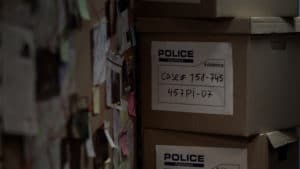Under California law, the defense is required to turn over specific information to the prosecution.
In criminal cases, the prosecution has an obligation under the constitution to turn over what is known as Brady material. Named after a United States Supreme Court case, this requirement extends to all material, exculpatory evidence. In other words, if the evidence is relevant to the guilt, innocence or punishment of the defendant, then the prosecution is required by law to turn it over to the defense.
This makes sense, as the prosecution has most of the information and power in a criminal case — and is the one who has made the decision to charge the defendant. Most of the evidence that will be used in a criminal case, such as police reports, witness statements, videos, DNA analysis, and photographs, will come from the state. But there is a possibility in any criminal case that the defense will have evidence of its own. In that situation, does the defendant have an obligation to disclose evidence to the prosecution?
According to a criminal defense attorney Santa Ana, CA, the answer is yes — but with some limitations. Unlike the broad discovery requirements for prosecutors, California law provides that defendants are obligated to provide the following information to the prosecution:
- The names and addresses of persons, other than the defendant, he or she intends to call as witnesses at trial;
- Any relevant written or recorded statements of any of these potential witnesses persons;
- Any expert reports, including the results of physical or mental examinations, scientific tests, experiments, or comparisons which the defendant intends to offer in evidence at the trial;
- Any real evidence which the defendant intends to offer in evidence at the trial (tangible objects, like a knife or a piece of clothing)
The purpose of these rules is to prevent unfair surprise at trial. In other words, if the defendant has an expert witness who will testify that the state’s DNA test was wrong and that he couldn’t have contributed to the DNA sample in question, the prosecution should have that information before trial. This has the added effect of promoting settlement before trial. For example, if the prosecution is given the opportunity to examine a report from a different expert witness, they may conclude that they need to reexamine their case — and end up reducing or dismissing the charges against the defendant.
Importantly, as a criminal defense attorney Santa Ana, CA can explain, the defense’s obligation to disclose evidence is not as broad as the requirements for the prosecution. This ensures that the defendant receives a fair trial and due process. In addition, if the prosecution fails to turn over evidence in accordance with the law, the defendant may file a motion to compel production of evidence — and a conviction may even be overturned.
If you have been charged with a crime, you need an attorney who understands California law, including the way that disclosure laws impact your case. Attorney Dan E. Chambers has worked as both a prosecutor and now as a private criminal defense lawyer. He puts his knowledge and experience to work for his clients, helping them achieve the best possible outcome for their cases. Contact the Chambers Law Firm today at 714-760-4088 or dchambers@clfca.com to schedule a free initial consultation.





